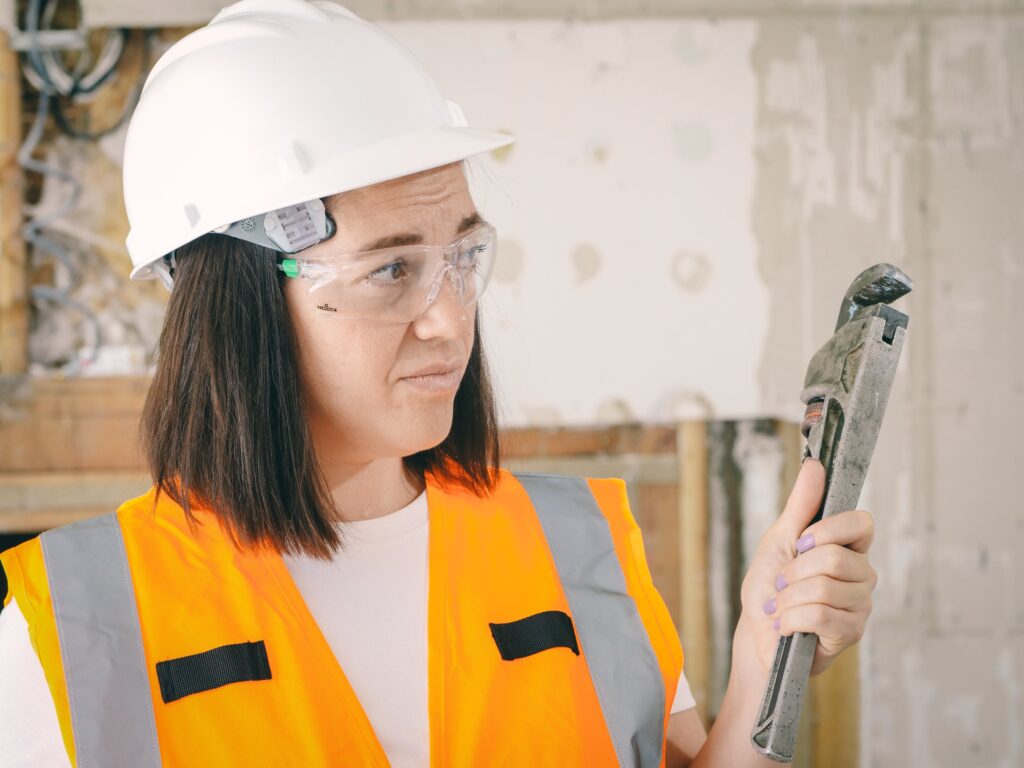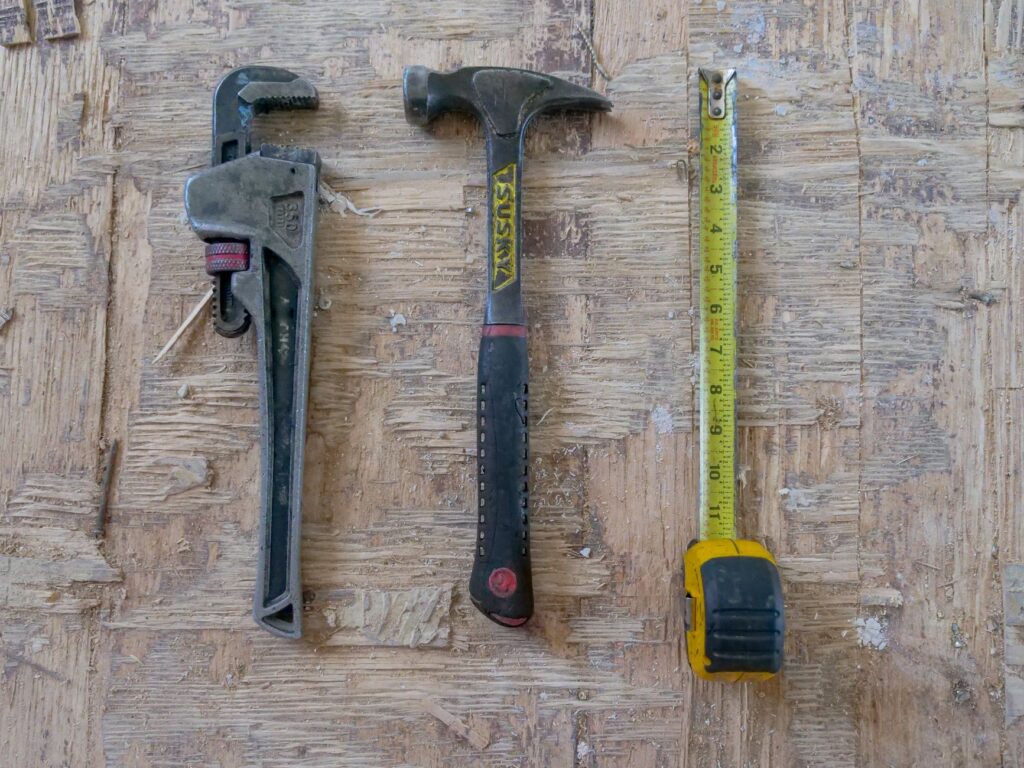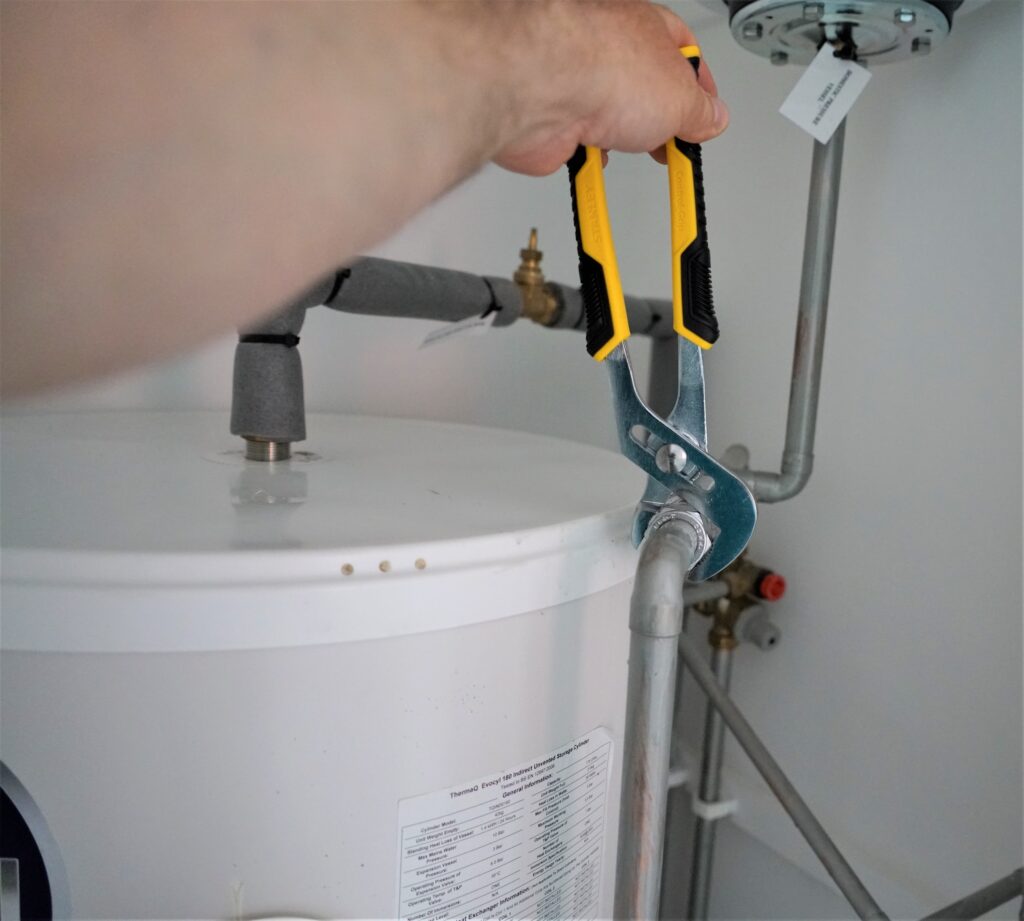 So you want to become a plumber. That’s great! It’s a tough but incredibly rewarding career. If you love hands-on work, constant learning and a touch of independence, this is certainly a job path worth pursuing.
So you want to become a plumber. That’s great! It’s a tough but incredibly rewarding career. If you love hands-on work, constant learning and a touch of independence, this is certainly a job path worth pursuing.
But where exactly do you start? Is it still possible to walk up to your local plumber and ask to have a job? Not quite. Now there are specific licenses, certificates and degrees you need.
This provides the right training and experience for a long and successful career in the plumbing industry. And don’t worry, everyone has to go through a learning curve. Even the most experienced master plumbers had to start off as lowly apprentices.
Over time, however, they built up knowledge and experience. They primed themselves for success and soon enough became trade leaders.
You can achieve that, too. And this guide will help. Here’s the definitive guide on how to become a plumber.
Complete Your High School Diploma or Degree
For some, this might not be the first thing you want to hear. But completing your high school diploma is actually one of the most important steps.
Good grades and a promising track record will make you look incredibly appealing to potential employers. Especially when competition for jobs are high and you want to stand out as much as possible.
You’re probably wondering why that is, especially for a trade that doesn’t need a university or college degree.
Well, let Billy Stutz from Ferguson explain:
“Having a basic knowledge of reading, writing, science and math are critical to pursuing any career in the pro trade industry.
“For plumbers, having an advanced knowledge of math and science are absolutely necessary since the work often involves making accurate measurements and gauging water.”
You don’t need to worry about serious equations for building a rocket, but you need to be precise and accurate in the home.
When you’re writing up invoices, purchasing parts or working through finances, you want everything to be on point.
A high school degree will vary on where you live, however. For example, in America it’s required by most states for plumbing apprentices to have a high school diploma and be 18 or older.
In Australia, organisations such as Master Plumbers do offer apprenticeships to people who have not completed Year 12 in Victoria.
In England the law differs again, slightly. You can be as young as 16 to apply for an apprenticeship, although you still need to have certain grades with GCSEs. Six month traineeships are also available as a lead in to any apprenticeship.
Trust Your Plumbing Qualities
It’s important to note, you don’t have to just be a high school graduate. While most apprenticeships are offered to people aged between 16-21, don’t let that stop you from pursuing a plumbing career.
For anyone 21 years of age or older, you’ll be classed as an adult apprentice. Some employers may be averse to hiring an older apprentice, but many will also see positives in an experienced and settled apprentice.
Regardless of age, the thing every employer looks out for are top plumbing qualities. They’re the kind of skills you want to have so you know this is the right field.
If you enjoy hanging out in nature every day and gardening, plumbing isn’t for you. If you like cooking, plumbing certainly isn’t the best choice.
But how exactly do you know what the right qualities are? The following sums it up best:
- Enjoys practical work
- Can work independently
- Not daunted by long hours
- Always ready for a challenge
- Good interpersonal skills/good customer service
- Willing to work in all weather conditions
Plenty of other traits are also important to being a plumber, but if you look at those six and say no, that’s not me this probably isn’t the career path for you.

Sign Up for a Plumbing Apprenticeship
If you’re set on becoming a plumber and know those qualities describe you perfectly, it’s time to become an apprentice.
How?
Well that all depends on where you live. Each country, and in fact each state or city, probably has some different opportunities. From trade schools to colleges, or even major plumbing businesses, each one will offer courses and apprenticeships.
You can certainly approach a local plumbing company and ask if they’re looking for an apprentice. They could directly help set you up for a fulfilling career.
Or, you can take a look at local resources available online. For example, in Australia there’s the Government’s Australian Apprenticeships website which links employers with aspiring apprentices.
Meanwhile, Americans can head to websites such as Explore The Trades which lists an array of trade schools and apprenticeship providers.
United Kingdom residents should definitely take a look at career information presented by the Chartered Institute of Plumbing and Heating Engineering, too.
Specific websites and sources of information will ensure you know exactly what steps are necessary in your apprenticeship.
Complete Your Apprenticeship
Typically a plumbing apprenticeship lasts from anywhere between 2-5 years. Some countries specify a time frame, such as four years, others a certain amount of hours, such as 6,000.
But among all the specifics is a rewarding and engaging learning curve. Apprentices get to work under master plumbers who often have 15+ years’ experience in the business. And when you’re learning from experts in a specialised field for so long, you truly do learn a lot.
And the best part is it’s more than just unblocking drains or cleaning sewer pipes. You’ll learn how to diagnose plumbing problems before they even appear and build strong communication abilities. You’ll practically employ all the math you learned at school and learn incredibly practical mechanical skills.
If you pause for a moment now, those skills will be a great help if you ever want to become a specialist plumber in an industrial field. You can easily move past the day to day work as a residential plumber.
Now, back to studying itself.
Throughout your apprenticeship there will be some additional licenses, certificates or courses that will be required. It all depends on what your local regulations require. But the good thing is they should be inclusive of any apprenticeship so you won’t be surprised at extra work.
Still, the hard work is all worth it! Your apprenticeship will turn you into a hands-on plumber. Even while working under the supervision of a master, there’s independence and chances to problem solve.
Alternatively, some places do offer short term apprenticeships, such as fast track plumber courses in England. However, they don’t come with the full gamut of qualifications or on-site work experience, but will get you a foot in the door quickly.

Become a Licensed Journeyman Plumber
The culmination of any apprenticeship is becoming a licensed plumber, often known as a journeyman plumber.
In America you will sit for a journeyman test after completing an apprenticeship. Other countries may include this in the whole process and then require you to secure an official license.
Becoming licensed means you can be contracted to work any residential plumbing job. And that’s without the assistance or guidance of a master plumber!
Despite that, the lessons never stop. As a fully licensed plumber you now face new challenges, more often on your own. You’ll also need to secure some steady employment. Hopefully the business which provided your apprenticeship will take you on full time.
If not, there will be other companies out there eager for staff and you won’t be searching for too long.
Securing Your First Job
As an apprentice you can claim the title of plumber, but you’re not yet fully fledged. You’ve worked in the field, done the hard yards, but haven’t secured your own true job without another plumber around.
Once you’re licensed that changes. Your first client is the real moment you become a plumber! The client is your own, whether you’re working for a big company or not. Perhaps you took the call or just attended on your own. Either way, there is a greater personal touch.
And perhaps you were able to enjoy the perk of finally driving a company van without the boss looking over your shoulder.
Now at your first job as a fully licensed, professional plumber, a new chapter begins. There’s independent problem solving and personal growth. Every day comes with new obstacles and opportunities to build relationships.
Relationships are a key part to being a plumber. You want to build trust and communicate with customers. You want to make sure they come back to you for all their needs.
As that happens over the years your skills will develop. Your connections will grow. Eventually, you’ll be able to spread your own wings! That could be your own business, which is the goal of many young plumbers. Or perhaps a move to a specialised plumbing field working on some large projects.
Regardless of your dream goal you will always be learning. The start of an apprenticeship is the very start of a bright, rewarding career.

